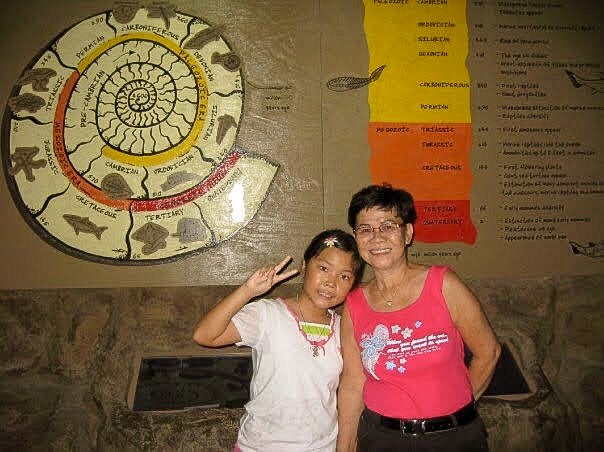Hello! My name’s Cherrell and I’m turning twenty-three this year. I’ve spent too many of my teenage years struggling with problems such as self-sabotage, low self-esteem and self-doubt. Today, I’m writing to honour my mental health journey. (TW: Depression, Anxiety, Eating Problems.)
Coping with Grief
Some of you might think, when did it all start? Truth be told, I can’t pinpoint exactly when my mental health started taking a toll and there is no underlying root cause. However, not knowing how to cope with my grandma’s death at the age of 15 definitely played a part. We were very close. Typically, I’d stay over on the weekends and we’d head to the wet market together. This continued until Ahma was diagnosed with lung cancer. I was fourteen, and my worldview had shifted completely from there on.

Ahma’s love was always steady and unyielding. My maternal grandfather had passed on when I was four, but her dedication to the family continued to show in many ways — particularly, she prepared dinner for us on weekdays while my parents were hard at work. I remember watching Ahma cook in the kitchen, and it was one of my favourite things to do when it was just the both of us at home. It was fascinating to see how she whipped up all five dishes, whilst singing passionately to her favourite hokkien tunes. I remember stealing bites of her chunky, golden-brown Tau Kwas before dinner had even started. I would always plead with her to not tell on me (it was rude table manners, I was taught), not that she ever did anyway. I later learnt that grandparents loved their grandchildren in a special way and these were my favourite memories of us.
When she had passed on, the emotional and physical pain was unbearable. Amidst consolatory words such as, ‘I’m sure she’s in a better place’, or ‘I’m sure she had lived a wonderful life’, I wondered deeply about whether these people had really understood what it meant to lose someone that you held so dearly, despite their kind intentions. Furthermore, it didn’t help that speaking about death seems to be a taboo in society. I struggled so much, having to resist the urge to not cry at my Ahma’s wake. Afterall, why was it considered such a bad thing? Wasn’t it normal to feel sad? Madelyn Chung’s article has helped me to process some of these afterthoughts in pointing out that the expression of grief is related to specific aspects of Chinese culture and rituals. At that point in time, I thought no one would truly ever understand how I grieved. I started burying these feelings and thoughts, and whenever they resurfaced, I’d channel them into extreme forms of self-hatred.
Keeping Busy to Avoid my Feelings
I started creating unrealistic routines. A typical day would look like — studying at 4am, going for a run at 6:30am, biscuits for lunch, studying after school hours without any breaks, soup for dinner. (Writer’s note: I never saw it as a problem then, but restricting my diet definitely had an impact on my mental and physical health, read this article to learn about the different types and symptoms of eating disorders)
I managed to scrape through my last year in secondary school, but I just wasn’t ‘living’ at all.

After the ‘O’ levels examination, I truly thought that I had ‘made it’ when I entered the school of my dreams, but soon enough, I was disillusioned. I had felt extremely out of place and was not able to cope with the transition from secondary school to junior college. My friends had seemed to move on with their lives, while I was neither here nor there, trapped in my own existence at seventeen.
Depression, Anxiety and Unhealthy Thought Patterns
My confidence level truly sunk in the following year when my coach told me that my stamina wasn’t ‘good enough’ for me to be playing on court. Not believing in myself and my own abilities, I felt silly for even wanting to experience a sports CCA.
Somewhere along the way, I had developed the idea that if I treated myself terribly, no one else would ever hurt me more than I could. Thereafter, I became very comfortable in my own feelings of sadness, I even romanticised my own negativity.
(Writer’s note: I was trapped in almost all of these unhelpful thought patterns, highlighted in this article and you should read to find out whether you possess any of these, because it could hinder you from seeing reality for what it really is.)
Appreciating the Good, Seeking Help and Moving Forward
Things weren’t all that bad for me. Throughout these years, I was supported by my family members, friends and teachers who accepted me for who I am. It was only with your patience, empathy and love that I was able to regain that same spark within me.
I will always be thankful to my friend Rachel, who first recognised my depressive symptoms and encouraged me to seek help when I was 17. Your comforting, reassuring and bright presence has made a big difference and it is why I can look back fondly on our junior college days, despite the many challenges we faced.
Coming from a stable family background, I know I have it a lot better than others. That’s the thing about mental health — it is a very real and human struggle that anyone could face at any point in time and yet, it looks different for every individual.
As such, it is my greatest hope that we will be open to these mindset shifts in Singapore:
- Realise that there is strength in seeking help
This means you love yourself enough, to recognise and meet your own needs. You don’t have to feel shame or embarrassment for reaching out. Treat yourself like someone you love and I know you can give yourself the same advice!
- Understand that stress is experienced differently by every generation
Stress is normal, but it can lead to anxiety and depression when left unmanaged. I do not believe that my peers and I struggle with our mental health simply because we’re a ‘strawberry generation’ that lacks resilience. Neither are we any less worthy of support just because youths tend to lead comfortable lifestyles and ee seem to have it ‘easier’.
This medically reviewed article has actually attributed increasing stress to other various reasons, such as, the surfacing of world issues such as climate change, pressures from social media and technology. Ultimately, the point here is not to pit the struggles of one generation against another.
- Listen to Love
Instead, we can learn to listen. Listening is an important skill, as well as an act of love because it enables the other party to feel heard and seen.
I used to think that there wasn’t value in speaking about my problems because even if someone were to listen, they wouldn’t be able to relate or understand entirely. I have come to realise that the desire to be understood will never be fulfilled, since the human experience varies from person to person.
If anything at all, this article reminds us that you don’t have to understand someone else’s struggles, but listening plays a big part because it shows that you are trying to empathise with the other person, without any judgement. This also means not imposing unhelpful statements such as “why can’t you just be happy?” or “don’t you see that you are much more fortunate than *inserts third world country*?”
To listen is to offer a safe space for difficult conversations.
How to start a conversation about mental health at home
Things started to change for me when I began speaking up about how I felt. I realised that I was never truly alone and it even inspired me to better support my peers. Necessarily, this was also because I had access to therapy which I will always be thankful to my parents for.
I recognise that everyone’s mental health journey looks different, but here’s what worked for me in the process of learning to speak about mental health at home:
- Find someone you trust and practice talking about your troubles
I used to keep everything to myself so speaking about my problems wasn’t an easy task, neither was it an overnight change. Initially, it might be easier to share about your feelings with anyone else other than your parents or siblings if this isn’t a regular practice at home.
It matters that you’re first able to speak about your issues with someone that you trust, and someone whom you know is able to hold space for you in their own capacity. This person might be a friend, partner, counsellor/ therapist or any other person than your family member, but that’s a great start! (P.S Remember to check in with the said person, you don’t want to end up dumping your emotions onto someone who isn’t in the capacity to listen.)
- The “talk”
Once you feel confident to express these emotions, prepare your family member(s) for the talk. Be specific in suggesting ways in which they can support you. This might look like, “I want to talk about something important and I’m hoping that you will be patient, even if it is difficult to understand. I have been feeling *inserts emotion here* and telling you this makes me feel *inserts emotion here*, but I want to tell you because I trust you and I need your help.
- Keep trying
I know how difficult it can get, but don’t give up. My own mental health concerns were met with skepticism at home. At one point in time, my family members even questioned the reason why I had to return to therapy after being “okay” without it for two years. That’s the thing – therapy doesn’t fix you. It can help you to cope with challenges by teaching you skills, and the end goal is to not be “okay”.
It is to know that you’ll be okay, even when you are not, because you have already acquired these healthy coping mechanisms and helpful ways of thinking.
Why it is important
Such conversations are never easy, but they will be worth it. Speaking about my struggles has allowed me to grow closer to my friends and family over the past few years. Just as they have spent time and effort to acknowledge and understand my struggles, I was also able to do the same for them.
Although youths are much willing to share amongst each other today, we cannot move forward without speaking about mental health at home. I believe that it is an important step to encourage open communication and intergenerational understanding, in order to destigmatise mental health. Furthermore, considering that the pandemic has impacted people’s mental healths widely, we need to recognise that we are better off working together.

This article is not intended to be a substitute for advice, diagnosis, or treatment.


